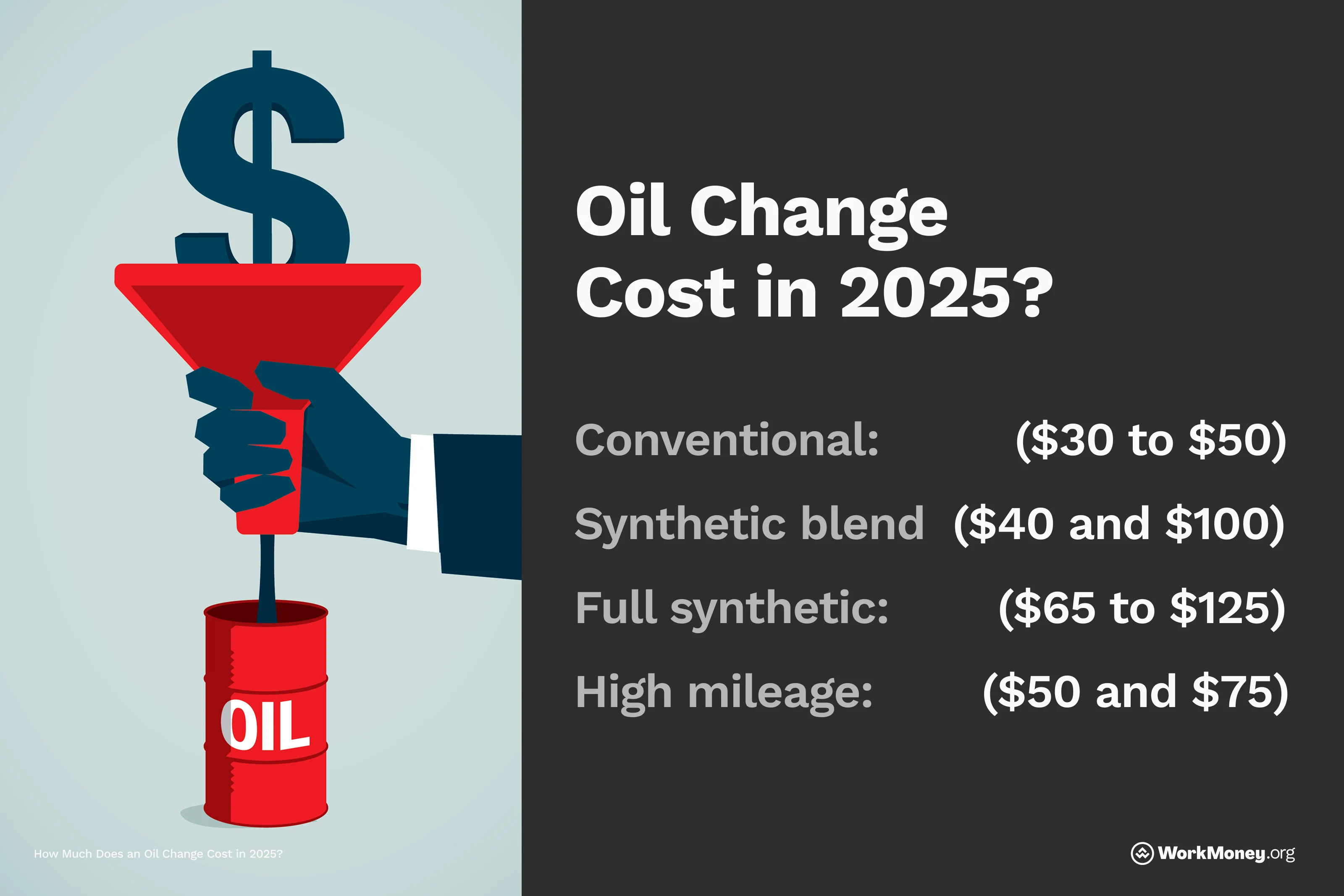How Much Does an Oil Change Cost?
Understand typical oil change costs and smart ways to save money on your next visit.

Getting an oil change may seem like just another expense. But it’s one of the best investments you can make to sustain the health of your vehicle. Motor oil is an essential part in keeping your engine working the way it should. It also helps protect your engine from rust and damage. So, if you skip an oil change or wait too long between them, it can lead to more costly repairs later on.
At WorkMoney, we’re here to help you save as much as possible on your next oil change. That’s because taking care of your car should not be a luxury, but a necessity.
We’ll break down what a typical oil change costs, what makes the price go up or down, and simple ways you can save money. We’ll also talk about when it’s worth paying a little more and when you can safely skip the extras.

Final Thoughts: Are Oil Changes Worth the Cost?
Oil changes are an essential step in keeping your car running smoothly. But that doesn’t mean you have to spend more than you need to.
Where you go, what kind of oil you use, and how often you get them done can all impact the amount of money you'll spend. It's a good idea to weigh your options and find what works best for your car and your budget.
With the right information, you can protect your vehicle and save money in the process. And if you’re looking for more ways to cut costs, WorkMoney can help you find benefits and resources you may already qualify for.
About the Author

DeShena Woodard
DeShena Woodard is a Financial Freedom Coach, Certified Life Coach, freelance personal finance writer, and podcast host. Her story, advice, and expertise have been featured in prominent outlets such as CNN Underscored, Business Insider, Yahoo Finance, NerdWallet, and more. Through her platform, Extravagantly Broke, she helps women take control of their finances with simple, stress-free strategies—without sacrificing the joy of everyday life. When she’s not writing or coaching, DeShena enjoys traveling, biking, and spending time with her family.

